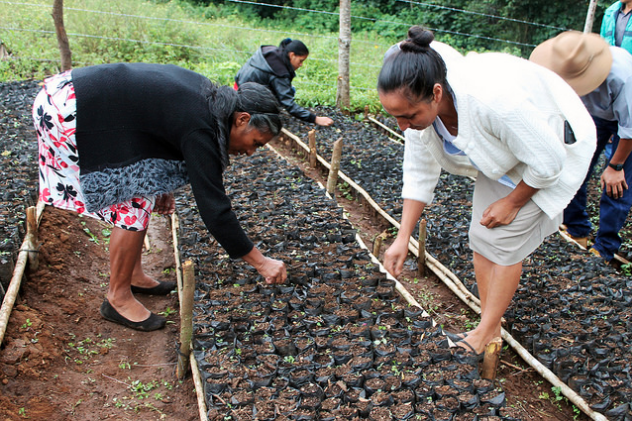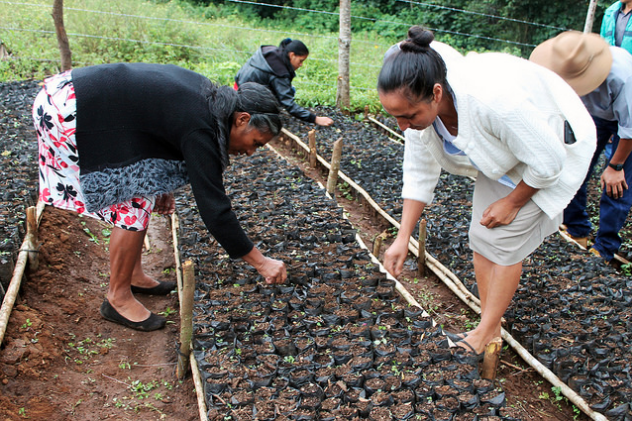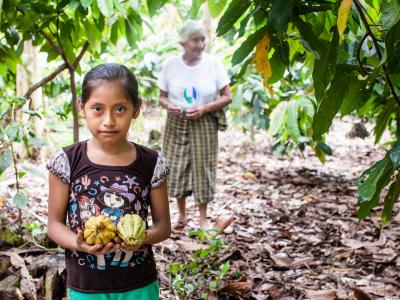
Adaptation policies
In an effort to increase resilience, Guatemala developed a National Climate Change Action Plan (
Plan de Acción Nacional de Cambio Climático, PANCC) that incorporates mitigation and adaptation priority actions. Some of the activities that the country is looking to implement include: increasing the production of grains; (2) strengthening early warning systems for food and nutrition insecurity; and providing technical assistance to the farmers to improve resilience and adaptation to climate change.
NAP-Ag activities
The NAP-Ag Programme is supporting the NAP Agricultura Guatemala with the aim to strengthen the adaptation component linked to agriculture, livestock and food security (Result 1) within PANCC. Activities include: (1) dialogues efficient water use for irrigation; (2) capacity development on water use; (3) cost-benefit analysis; and (4) integration of agriculture in the sectoral monitoring and evaluation frameworks.
Dialogues on efficient water use for irrigation
Discussions on the legal, political and institutional framework associated with water use for irrigation include:
• Promotion of the efficient use of water in irrigation units through the National Federation of Irrigation Users -FENURGUA-, as practices of adaptation to climate change in the agricultural sector.
• Promotion of agricultural adaptation practices to climate change at the community, institutional and national levels.
Capacity development of policy makers and extension agents
Capacity development for ministry professionals on efficient use of water for irrigation, as a practice for adapting to climate change in agriculture.
Development of a training program aimed at MAGA extension agents, with the theme of adapting agriculture to change climate.
Cost-benefit analysis and monitoring and evaluation frameworks
Capacity development at the inter-institutional level through workshops on cost-benefit analysis and integration of agriculture in the sectoral monitoring and evaluation frameworks.
> FAO y PNUD ejecutan en Guatemala proyecto de adaptación al cambio climátic (EFE Verde)
20 December 2017 - La Organización de las Naciones Unidas para la Alimentación y la Agricultura (FAO) y el Programa de Naciones Unidas para el Desarrollo (PNUD), con el apoyo financiero de Gobierno de Alemania, ejecutarán en Guatemala un proyecto de adaptación al cambio climático, informó hoy una fuente de la ONU. Según la FAO, se trata del Plan Nacional de Adaptación (NAP-Agricultura) que también se ha desarrollado en Colombia, Gambia, Kenia, Nepal, Filipinas, Tailandia, Uganda, Uruguay, Vietnam y Zambia. El programa, que tendrá una duración de dos años, se ejecutará en regiones del denominado Corredor Seco, en el oriente de Guatemala, en apoyo al gobierno, dijo el organismo de las Naciones Unidas en un comunicado.
> Introducing the NAP-Ag Project in Guatemala
8 December 2017, Guatemala City - The Government of Guatemala presented on the NAP-Ag on 30 November 2017 in Guatemala City. Under the Ministry of Agriculture, Livestock and Food (MAGA) the NAP-Ag project aims to strengthen the issues related to the adaptation to climate change in the country's agricultural sectors and strengthening of institutional capacities through the development or updating of policy and planning instruments at the national, sectoral and local level.
> Presentan Proyecto NAP-Agricultura en Guatemala
08 December 2017 - La Organización de las Naciones Unidas para la Alimentación y la Agricultura (FAO) en conjunto con el Programa de las Naciones Unidas para el Desarrollo (PNUD) presentaron el Proyecto de Integración de la Agricultura en los Planes Nacionales de Adaptación (NAP, por sus siglas en inglés) que apunta a fortalecer los temas relacionados con el riego, adaptación ante el cambio climático en el sector agropecuario del país y el fortalecimiento de las capacidades institucionales a través del desarrollo o actualización de instrumentos de política y planificación en el ámbito nacional, sectorial y local, para contribuir con el Ministerio de Agricultura, Ganadería y Alimentación (MAGA).
Related Publications and Documents



